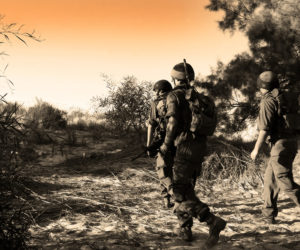
Sorry, your browser is not compatible with this application. Please use the latest version of Google Chrome, Mozilla Firefox, Microsoft Edge or Safari.
Law Enforcement content

Making Justice Systems More Effective and People...
Justice systems are under growing pressure to meet public expectations for fairness, accessibility, and real-world impact. This report explores how people-centred justice can close the global justice gap by focusing…
Learn More


Metropolitan Nashville (TN) Police Department’s...
This CRI-TAC Spotlight highlights how the Metropolitan Nashville Police Department built a structured, confidential wellness check program to support officers routinely exposed to trauma. It outlines the purpose, design, and…
Learn More


Adopting a Systems Approach to Police Staffing
This COPS Office publication examines police staffing as a dynamic ecosystem shaped by workload, workforce goals, organizational culture, and community expectations. Drawing on decades of research and practitioner experience, it…
Learn More


Crime Victims Fact Sheet
This fact sheet provides a closer look at how federal drug offenses impact victims, drawing on sentencing data from fiscal year 2023. It highlights the scale of harm involved, including…
Learn More


Crime Victims Fact Sheet
This fact sheet analyzes federal criminal cases in which restitution was ordered, highlighting how often victims are identified and compensated under sentencing guidelines. Drawing on fiscal year 2023 data, it…
Learn More


Crime Victims Fact Sheet
This fact sheet examines victim impacts in federal criminal enterprise cases sentenced in fiscal year 2023, including racketeering, extortion, and related offenses. It highlights the scale and severity of harm,…
Learn More


Correctional Populations in the United States, 2023
The 2023 correctional data paints a clear picture of how the U.S. justice system continues to shift, with more than 5.5 million adults under some form of supervision nationwide. Although…
Learn More


Prisoners in 2023
The latest national prison statistics reveal a continued rise in state-level incarceration, marking the first back-to-back yearly increases in more than a decade. While the overall population grew to 1.25…
Learn More


Criminal Victimization
This report offers a detailed look at trends in violent and property crime across the United States in 2024, revealing that overall victimization rates remained stable compared to the previous…
Learn More


Expansion of Joint Task Force Alpha and...
This memorandum outlines the Department of Justice’s expanded effort to combat human smuggling, trafficking, and related immigration crimes driven by cartels and transnational criminal organizations. It elevates Joint Task Force…
Learn More


Colorado’s Child Welfare System
Colorado’s child welfare system works across state and county agencies to protect children from abuse and neglect, respond to concerns quickly, and support families with needed services. Reports flow through…
Learn More


Overview of the Colorado Judicial Branch
Colorado’s Judicial Branch plays a central role in upholding justice across the state, managing everything from trial and appellate courts to specialty courts focused on behavioral health, veterans, and water…
Learn More


Employee Wellness Guidance
This guide from the U.S. Department of Justice’s COPS Office and Georgetown Law’s Center for Innovations in Community Safety provides a comprehensive framework for promoting wellness within law enforcement agencies.…
Learn More


Victim-Centered, Trauma-Informed Practices
This report highlights how police departments and community stakeholders are working to build trust through collaborative strategies and local engagement. It explores programs that rely on dialogue, shared responsibility, and…
Learn More


Modernizing Online Operations for Inspector...
For today’s Offices of Inspectors General (OIG), secure online access is critical to investigating fraud, abuse, and misconduct across surface, deep, and dark web environments. Traditional tools leave investigators exposed,…
Learn More


